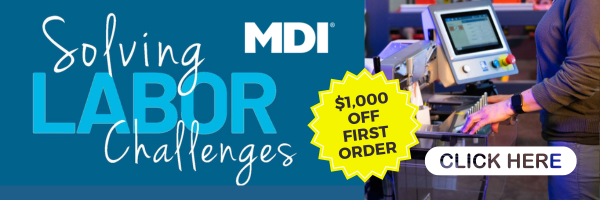
The Devil and the Details
The Weekly Report – July 24, 2023
Our expert employment attorney is ready to help manufacturers comply with Minnesota’s new state employment laws.
Manufacturers across the state face several significant changes in employment law thanks to a flurry of activity in the last legislative session.
Years ago, when I worked in the U.S. Senate in Washington, D.C., and the Minnesota Legislature in St. Paul, I learned that there’s often an inverse relationship between media coverage of a new law and its impact on business. In other words, the smaller the headline, the bigger the consequences.
That seems to be the case with many of the new provisions enacted this year. Effective dates have passed, or are fast-approaching for some of these provisions, and employers need guidance as they make required changes to comply with the new landscape. But there’s just not a lot of concrete information about what employers need to do to comply with them.
We asked employment law attorney Natolie Hochhausen of FMJ Law in Eden Prairie to meet with our Peer Council members last week about these new laws. FMJ Law handles our legal work at Enterprise Minnesota, and has served as an excellent resource for many of our clients over the years.
Natolie outlined the potential impact of each new provision. It was a virtual meeting, but I sensed the concern among the 50-plus participants at the start. By the end, it was clear they had a much better grasp of the laws and their requirements, lightening the mood considerably.
Natolie focused on five new laws: the prohibition of non-compete agreements; the legalization of cannabis (and the impact on workplace drug policies); new protections for nursing and expectant mothers; extension of Minnesota’s paid sick and safe time to all employees (including temporary and part-time workers); and a new paid family and medical leave program similar to unemployment insurance.
Each of these provisions involves subtleties that manufacturers need to consider as they implement and communicate policies that satisfy new legal requirements.
The legalization of cannabis for example, means employers will need to revisit drug testing policies. While documented impairment can be grounds for retaliation, a positive test for marijuana use cannot be. Similarly, effective July 1, 2023, employers are prohibited from requiring non-compete agreements as a condition of employment, but employers can still enforce previously signed agreements and take steps to protect trade secrets and solicitation lists.
Natolie emphasized that manufacturers must understand the details of each of these laws and incorporate changes into company policies and employee communication. We urge all employers to take steps to ensure they are in compliance, and we know that Natolie and her partners at FMJ will be a great resource for Enterprise Minnesota clients as they navigate these changes.
 Find upcoming events and workshops on our Events Page
Find upcoming events and workshops on our Events Page
 Industry news
Industry news
Minnesota workforce participation inches past 68%
July 21, Brainerd Dispatch
Making a stand at Blandin Paper Company
July 24, Grand Rapids Herald Review
Minnesota-made medical devices help drive Abbott sales growth
July 20, Star Tribune
Walz promotes $20 million in workforce development grants
July 18, KSTP.com
Mankato area again leads all others in state in job growth
July 20, Mankato Free Press
